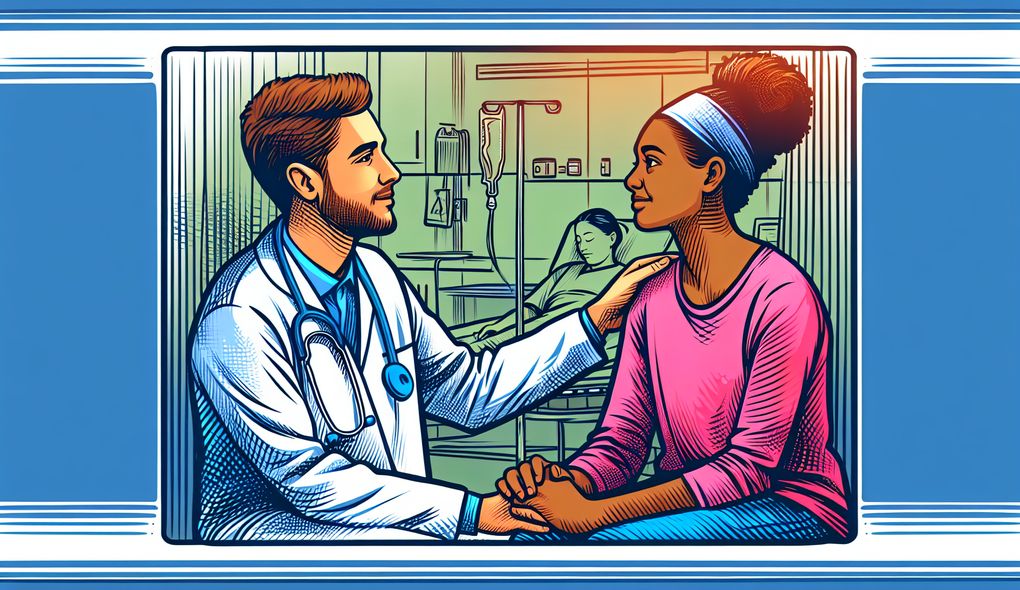How do you offer support and education to patients and families regarding addiction and recovery?
INTERMEDIATE LEVEL

Sample answer to the question:
In my previous role as a Substance Abuse Nurse, I offered support and education to patients and families regarding addiction and recovery by providing personalized care and resources. I would start by listening attentively to their concerns and addressing any questions they may have. I would then explain the nature of addiction and the recovery process in a compassionate and non-judgmental manner. Additionally, I would provide educational materials, such as brochures and pamphlets, that emphasized the importance of community support and offered information about local support groups and resources. I would also connect patients and their families with counselors and therapists specializing in addiction and recovery to ensure they received the necessary emotional support. Overall, my goal was to empower patients and families with knowledge and resources to help them navigate the challenges of addiction and recovery.
Here is a more solid answer:
In my role as a Substance Abuse Nurse, I always prioritize compassionate and patient-centered care when offering support and education to patients and families regarding addiction and recovery. I believe in establishing a strong rapport with patients and their families, creating a safe and non-judgmental environment for open communication. This involves actively listening to their concerns, providing empathetic responses, and addressing any questions or misconceptions they may have. To ensure effective communication, I adapt my approach based on the individual's cultural background, taking into consideration their beliefs and values. For example, when working with diverse populations, I would use culturally sensitive and inclusive language, respect personal boundaries, and tailor educational materials to their specific needs. I also understand the significance of involving the patient's support system in their recovery journey. I offer guidance and resources to families, explain the importance of their role in the recovery process, and provide referrals to support groups or counseling services. By engaging patients and families in their care and providing personalized education, I aim to empower them to make informed decisions and actively participate in their recovery.
Why is this a more solid answer?
The solid answer expands on the basic answer by providing specific examples and details that demonstrate the candidate's skills and experience in the relevant evaluation areas. It highlights the candidate's ability to provide compassionate and patient-centered care, excellent communication and interpersonal skills, and cultural sensitivity and awareness in dealing with diverse populations. The answer also emphasizes the candidate's understanding of the importance of involving the patient's support system in their recovery.
An example of a exceptional answer:
As a Substance Abuse Nurse, my approach to offering support and education to patients and families regarding addiction and recovery goes beyond the basics. Understanding the unique challenges individuals face, I take a holistic approach to care, addressing their physical, emotional, and social needs. I initiate conversations about their personal goals, motivations, and barriers, allowing me to tailor my education and support to their specific circumstances. For example, if a patient expresses concern about managing cravings, I would teach them specific coping strategies and mindfulness techniques, providing them with tools to navigate these challenges. Additionally, I believe in the power of storytelling and peer support. I would often connect patients with individuals who have successfully overcome addiction, allowing them to gain inspiration and hope from real-life experiences. Moreover, I engage in continuous professional development to stay updated on the latest research and evidence-based practices in addiction and recovery. By staying informed and sharing this knowledge with patients and families, I empower them with the most current information and enhance their understanding. Ultimately, my aim is to foster long-term recovery and help individuals and their families rebuild their lives.
Why is this an exceptional answer?
The exceptional answer takes the solid answer to the next level by providing additional details and examples that demonstrate the candidate's exceptional skills and experience in the relevant evaluation areas. The answer showcases the candidate's holistic approach to care, their ability to provide specialized education and support based on individual needs, and their dedication to continuous professional development. The answer also highlights the candidate's emphasis on storytelling and peer support to inspire and motivate patients.
How to prepare for this question:
- Familiarize yourself with the principles of compassionate and patient-centered care. Understand the importance of active listening, empathy, and non-judgmental communication.
- Develop your cultural sensitivity and awareness by educating yourself about different cultures, customs, and beliefs. Learn how to adapt your communication and approach accordingly.
- Stay updated on the latest research and evidence-based practices in addiction and recovery. This can be done through attending conferences, subscribing to reputable journals, and participating in relevant training programs.
- Gain experience and knowledge in mental health disorders and co-occurring substance use disorders. Understand the relationship between these conditions and how they influence addiction and recovery processes.
- Practice your communication and interpersonal skills. Role-play different scenarios to improve your ability to effectively convey information and address concerns.
What are interviewers evaluating with this question?
- Compassionate and patient-centered care approach
- Excellent communication and interpersonal skills
- Cultural sensitivity and awareness in dealing with diverse populations

